
Discussion on challenges and innovative catalytic reactor solutions for the process industry
Participating Horizon Europe Projects: e-CODUCT, EReTech, ēQATOR, TITAN and STORMING
Prof. dr. Joris W. Thybaut, Ghent University
Franz Hörzenberger, ArcelorMittal
Walter Vermeiren, Total Corporate R&D
Dr. Gleb Veryasov, TotalEnergies
Dr. Gianluca Pauletto, SYPOX GmbH
Dr. Richard Heyn, SINTEF
Dr. David Farrusseng, IRCELYON
Assoc. Prof. dr. Patricia Benito, University of Bologna
Moderator: Prof. dr. Georgios Stefanidis, National Technical University of Athens
Moderator: Prof. dr. Joris W. Thybaut, Ghent University
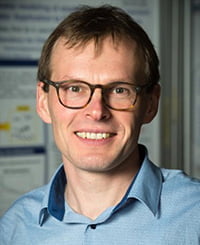
Joris W. Thybaut is senior full professor in catalytic reaction engineering at the Laboratory for Chemical Technology at Ghent University. Since 2005, he has been involved in numerous research projects as a partner, leader or coordinator, investigating a variety of large-scale hydrocarbon conversion reactions and the rational design of the corresponding catalysts and reactors. He is one of the leading academics in the Eurokin consortium for kinetics and reactors. His research activities have evolved from classical refining reactions to renewables valorization. Recently, the range of chemistry studied has been further extended to inorganic reactions, pharmaceutical applications and circular chemistry. He is coordinator of the e-CODUCT and scientifically involved in the modelling and simulation of COS synthesis and decomposition.
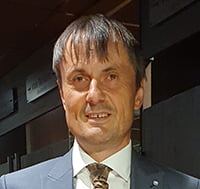
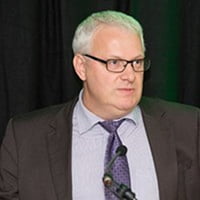
Walter Vermeiren is Head of Technology and Scientific Intelligence at Total Corporate R&D. He is chairman of the “Cracker of the Future” consortium, in which petrochemical companies are jointly investigating how naphtha or gas steam crackers can be powered by renewable electricity instead of fossil fuels. The aim is to produce basic chemicals while significantly reducing carbon emissions. He is a member of GDR Tamarys, which brings together material science and heat transfer specialists to address the complex and physical barriers to developing industrial processes and systems dominated by radiative transfer.
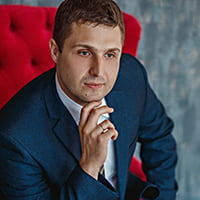
Dr. Gleb Veryasov is an R&D team leader in TotalEnergies. Gleb obtained a Master’s degree in physical chemistry at Lomonosov Moscow State University (Moscow, Russia), and a PhD in engineering at the Jozef Stefan Institute (Ljubljana, Slovenia). After graduation, he has held multiple assignments in France, Belgium, and Japan in the areas of electrolytes for batteries, gas storage, and automotive lubricants. Today his activities are mostly focused on new electrified and low-carbon processes for the production of hydrogen and base chemicals. In e-CODUCT, he is responsible for project management, working on strategic topics. TOTB will also be the main user of the project results to ensure the techno-economic feasibility of e-CODUCT and potential future deployment of the technology in refineries and energy sector.
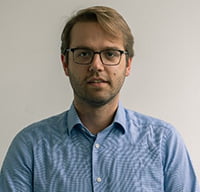
Dr. Gianluca Pauletto received his M.Sc. in Chemical and Process Engineering at University of Padua in 2016. He completed his Ph.D. at Polytechnique Montréal in 2020, working on conversion of stranded gas into liquid fuels. As a Ph.D. he focused on syngas production and collaborated with many research groups in Canada, Italy, Germany, France, and USA from both academia and industry. Since 2020 he is working on electrification of the chemical industry. He is the inventor of an innovative electrically heated chemical reactor and also an entrepreneur having raised approximately €1.5M in non-dilutive fundings. Currently he is the CEO of SYPOX GmbH, a deep tech startup coming from the Technical University of Munich. Since June 2022, he is leading the EReTech consortium that is focusing on the electrification via resistive heating of high temperature thermochemical processes.
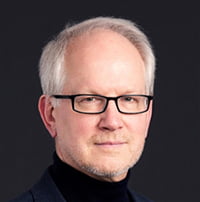
Dr. Richard H. Heyn is Chief Researcher at SINTEF Industry in Oslo, Norway. Richard has a Ph. D. in organometallic chemistry from the University of California, San Diego and has been employed at SINTEF since 1998. His primary area of research is within homogeneous catalysis for sustainable chemistry, with a particular interest in the use of CO2 for the production of chemicals and materials. He is the Vice-Chair of Circularity Innovation in the Advisory and Programming Group of the EU’s Private-Public Partnership Processes4Planet and is coordinator of the ēQATOR project.
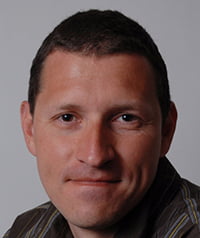
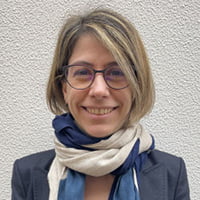
Patricia Benito is Associate Professor of Industrial Chemistry at the University of Bologna (Italy). She has consolidated expertise in industrial chemistry and heterogeneous catalysis, in particular in the field of structured catalysts for thermo- and electrocatalytic applications. Her research work currently focuses on the development of catalytic processes and catalysts for the conversion CO2 and the electrification of the chemical industry to produce CO2-free H2 and to valorize biomass-derived compounds. In the STORMING project, she is the scientific coordinator and she is involved in the optimization of catalytic formulations and catalytic reactors for electrified methane cracking.
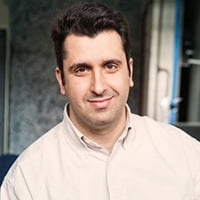
Prof. Georgios Stefanidis holds an M.Sc. degree in Chemical Engineering from the National Technical University of Athens and a Ph.D. in the same field from Ghent University. He is co-author of more than 100 peer-reviewed publications in the broad field of process intensification, mostly focusing on alternative energy forms and transfer mechanisms (mainly microwaves and plasma), as well as the first book on the “Fundamentals of Process Intensification” (Wiley VCH, 2019). His research activities include the modelling of concurrent flow, chemistry and multiscale transport phenomena in electromagnetic and plasma fields, and the design and development of tailored devices for microwave and plasma-assisted processes, including CO2, CH4 and waste recovery processes, among others. He currently chairs the EFCE working group on process intensification and is on the board of the Association of Microwave Power in Europe for Research and Education (AMPERE).